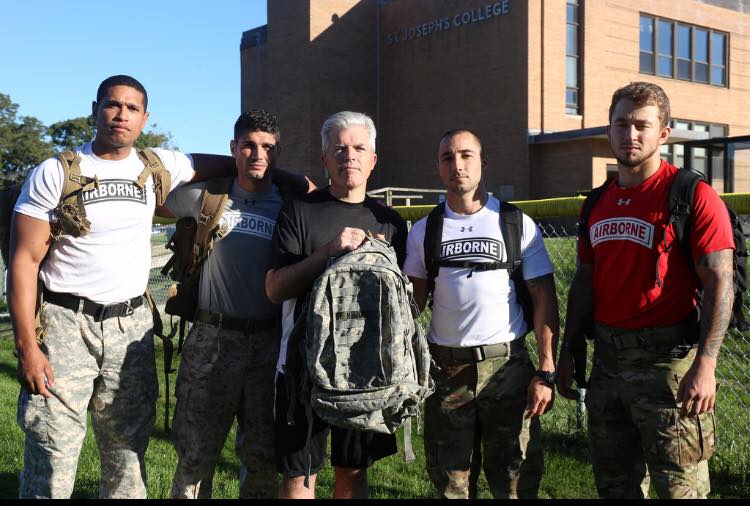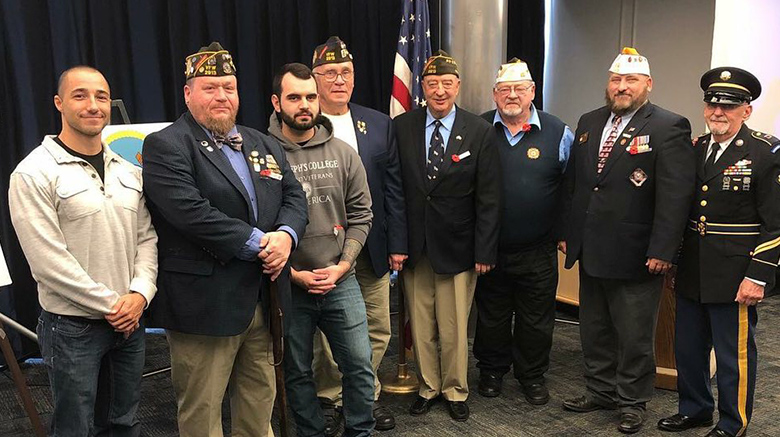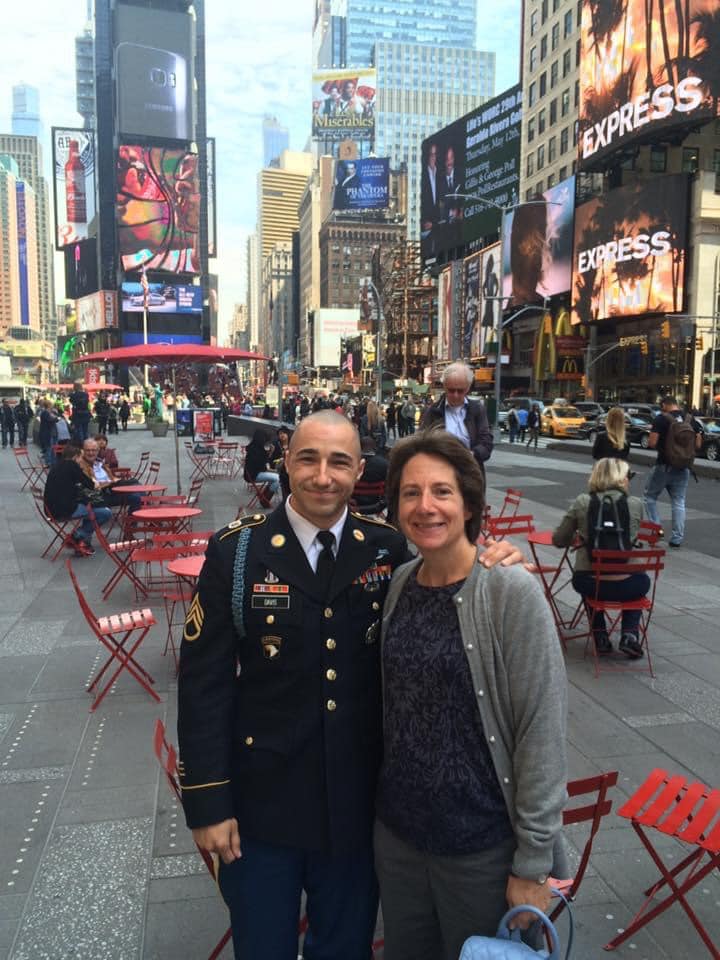When he was a student at SJC Long Island, Staff Sgt. John Davis served a work-study job, where he worked in the College’s Veterans Resource Center and helped other students like himself. Because of this, he learned firsthand just how important work-studies are for student veterans.
Now, he’s advocating for legislation that would increase the scope of, and the funding for, the VA work-study program.
“Veteran students are more likely to be older, married and have families to support. If veterans can work jobs that accommodate their studies, on campus or within the veteran community, it will mean higher graduation rates,” said Davis, who earned a degree in history with a concentration in adolescence education from SJC Long Island in January 2020.
“Working on campus will keep them engaged in their studies, connected to the school and stay on the path to graduation,” added Davis, who served in the U.S. Army from 2009 to 2017.
Fighting to Make a Difference
Davis, now pursuing his master’s in international education from Harvard, was inspired to fight to expand VA work-study options for student veterans based on his own experience working at St. Joseph’s College while earning his degree.

Davis (second from right) on campus with other student veterans and County Executive Steve Bellone (center).
“It gave me an opportunity to help other student veterans and incoming veterans at St. Joseph’s, and it kept me connected to the school and provided me with income so I didn’t have to find a job outside of school,” Davis, 34, said. “Working a job during school as a student veteran, which I could do around my school schedule, led to me being much more academically, socially and mentally successful than I would have been seeking outside employment.”
Davis, a member of Patchogue VFW Post 2913, applied to present the legislation in Washington, D.C., by sending a research proposal to the VFW Legislative Offices in D.C.
“The VFW National offices and the Student Veterans of America (SVA) partner to give veterans a voice to advocate about issues that can be improved through legislation,” said Davis, originally from Bettendorf, Iowa. “I’m honored to be selected to represent these organizations, as well as St. Joseph’s College and Harvard, in my effort to improve the lives, success and experience veterans face every day on college campuses.”
For now, Davis is conducting research in order to present his findings to veteran congressional committees. He will also be meeting individually with members of congress and senators.
“I’ve learned that the people closest to problems are the ones best suited to solve those problems,” Davis said. “As someone who struggled with the everyday problems student veterans face being nontraditional students, I hope to bring an enthusiastic perspective to the real-world problems veterans face.”
Looking at the Bigger Picture
 Davis, who published a book in March sharing advice on how to succeed as a student veteran, is all about making a long-term difference in the lives of other veterans — and he recognizes that the first step starts with education.
Davis, who published a book in March sharing advice on how to succeed as a student veteran, is all about making a long-term difference in the lives of other veterans — and he recognizes that the first step starts with education.
“My view is that education is the key to veteran success,” Davis said. “More veterans graduating college is going to mean less suicides, as well as decreased PTSD, homelessness and substance abuse throughout the veteran community. This makes my goal life or death to me, just like combat was in Afghanistan for myself and others.”
As of right now, Davis expects the meetings to take place virtually.
“The VFW and Student Veterans of America national organizations are still working on the details of what is going to happen, given the current context and environment,” Davis said. “But I think it might be more advantageous to get real-world legislation passed that will impact veterans at St. Joseph’s and around the country.”


